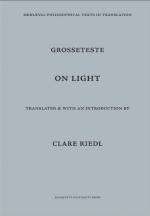|
This section contains 16,008 words (approx. 54 pages at 300 words per page) |

|
SOURCE: McEvoy, James. “Robert Grosseteste on the Ten Commandments.” Recherches de Theologie Ancienne et Medievale 58 (January-December 1991): 167-205.
In the following essay, McEvoy argues that Grosseteste's popular treatise on the decalogue was written for a well-educated clerical public; that its most notable doctrinal theme is Christian love; and that it comments favorably on the structure of feudal society while also pointing out and castigating abuses within that system.
The treatise of Grosseteste on the decalogue bore in medieval times a number of titles: de decem preceptis; de mandatis; summa de decem mandatis; de dileccione et decem mandatis; libellus de decem preceptis decalogi1. No such doubt, however, or variation of opinion affected its authenticity, and no scribe attributed the treatise to any but Lincolniensis. Such connoisseurs of Grosseteste as Gascoigne and Wyclif were quite certain of its attribution, about which indeed no doubt has ever been entertained: the bibliographers, beginning...
|
This section contains 16,008 words (approx. 54 pages at 300 words per page) |

|


